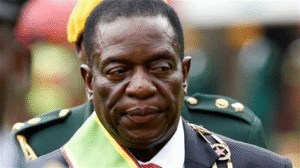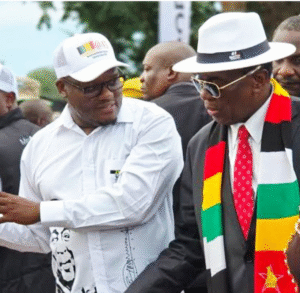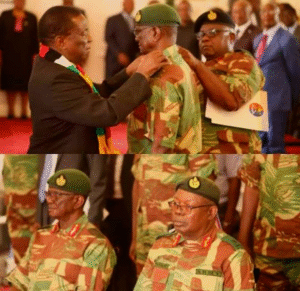ZIMBABWE’S CHIEF DIRECTOR OF STRATEGIC COMMUNICATIONS LABELS JOURNALIST HOPEWELL CHIN’ONO A “THREAT TO NATIONAL SECURITY”

In a concerning turn of events, Zimbabwe’s Chief Director of Strategic and Presidential Communications, Dr Anyway Mutambudzi, has recently made headlines by branding veteran journalist Hopewell Chin’ono’s social media posts as “a threat to national security.” This move is widely seen as an attempt to intimidate and silence Chin’ono, who has been a vocal critic of the Zimbabwean government.
When government officials, anywhere in the world, start categorizing individuals, especially journalists, as “a threat to national security,” it raises serious concerns about the state of freedom of speech and democracy within that country. Such classifications often pave the way for a series of actions that could include harassment, arrests, or other forms of harm. In Zimbabwe’s case, this recent development has ignited a fresh debate about the status of press freedom and the government’s approach to dissenting voices.
Dr Mutambudzi’s assertion that Chin’ono’s output seeks to create division between citizens and the ruling party, government, and the state is a matter of grave concern. It is crucial to dissect this accusation and understand its implications for both journalism and democracy in Zimbabwe.
Chilling Effect on Journalism
Labeling a journalist as a threat to national security has a chilling effect on journalism, making reporters hesitant to cover sensitive issues or criticize the government. Freedom of the press is a cornerstone of any democracy, enabling the media to act as a watchdog, holding those in power accountable for their actions. When journalists are intimidated and silenced, it jeopardizes the public’s right to information and undermines the very essence of a democratic society.
The Power of Social Media
In today’s digital age, social media has become a powerful tool for journalists to disseminate information and engage with the public. However, this also makes them vulnerable to government scrutiny. Chin’ono’s use of social media to highlight alleged government corruption and human rights abuses has made him a prominent figure in Zimbabwean journalism. By branding his social media posts as a threat to national security, the government appears to be trying to stifle this vital avenue for free expression.
Defending Democracy
Democracy thrives when there is a robust exchange of ideas and open debate. While governments have the responsibility to ensure national security, it should not come at the expense of suppressing dissenting voices. In fact, a healthy democracy welcomes criticism and values the role of journalists in holding those in power accountable. Dismissing critical voices as threats only weakens the democratic fabric of a nation.
International Concerns
Zimbabwe’s actions have not gone unnoticed on the international stage. Human rights organizations and governments worldwide have expressed concern over the treatment of journalists and activists in the country. Such actions not only tarnish Zimbabwe’s image but also strain its diplomatic relations with other nations.
A Call for Dialogue
In light of these developments, it is imperative that the Zimbabwean government engage in a constructive dialogue with journalists and activists rather than resorting to intimidation tactics. A thriving democracy is built on the foundation of open discourse and a free press. By silencing critical voices, the government risks alienating its own citizens and further damaging its credibility on the global stage.
The branding of Hopewell Chin’ono as a “threat to national security” by Zimbabwe’s Chief Director of Strategic and Presidential Communications is a troubling sign for democracy and press freedom in the country. It highlights the importance of safeguarding the fundamental principles of democracy, including freedom of the press and freedom of expression. Zimbabwe must choose the path of dialogue and engagement rather than intimidation and suppression to ensure a brighter future for its citizens and its standing in the world.



